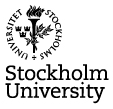
Theory of co-evolutionary change
Prof. Daniel W. Bromley, Wednesday, March 18, 2009.
Indeed, Thorstein Veblen, in an 1898 article entitled: “Why is Economics Not an
Evolutionary Science?" wrote that:
...the economic life process [is] still in great measure awaiting theoretical formulation. The active material in which the economic process goes on is the human material of the ...community. For the purpose of economic science the process of cumulative change that is to be accounted for is the sequence of change in the methods of doing things, the methods of dealing with the material means of life.
Not much has changed in the last century. Economics cannot become an evolutionary science as long as it is imprisoned by - indeed defined by - models of rational choice. Volitional pragmatism offers a new theoretical approach to evolutionary change in human systems. Bromley will discuss the three central attributes of an evolutionary economics - animation, adjustment, and adaptation.
The presentation will build on and elaborate Bromley´s recent paper in Ecological Economics, entitled “Volitional Pragmatism". The article can be provided upon request from louise@albaeco.com.
About Daniel W. Bromley
Prof Bromely has published extensively on:
- the institutional foundations of the economy
- legal and philosophical dimensions of property rights
- economics of natural resources and the environment
- economic development.
He has been editor of the journal Land Economics since 1974. Bromley is a Fellow of the Association of Environmental and Resource Economists, the American Agricultural Economics Association, He has worked and lectured in over 20 countries around the world. His latest book is Sufficient Reason: Volitional Pragmatism and the Meaning of Economic Institutions, and was published in 2006 by Princeton University Press.
Time and place
Linné Hall, the Royal Swedish Academy of Sciences,
Lilla Frescativägen 4, Stockholm
Vacancies | Contact | Environmental policy | Cookies
Stockholm Resilience Centre
Stockholm University, Kräftriket 2B | Phone: +46 8 674 70 70 | info@stockholmresilience.su.se
Organisation number: 202100-3062 | VAT No: SE202100306201


